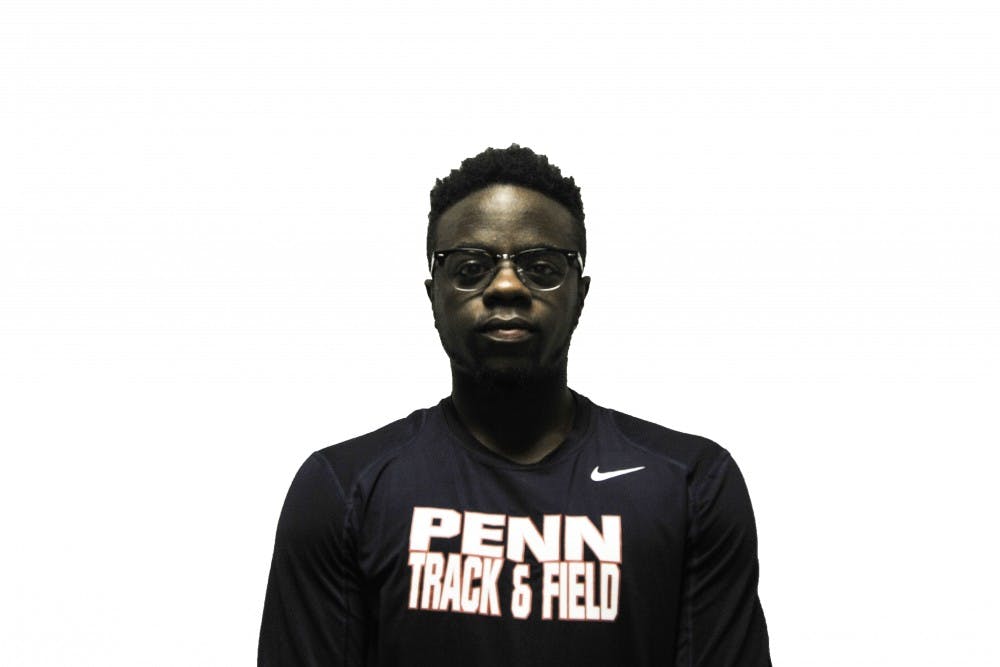I feel like everyone still doesn’t understand. Black students on your campus were threatened with lynching. Lynching. And if that makes you uncomfortable, imagine how I feel walking home from the library at 2 a.m.
As I climb the social ladder at Penn — to which we are all so privileged to have access — it seems like every step I take, the fewer blacks I see. It was my hope that by doing well in school, attending an Ivy League institution and aspiring to be the best thinker and professional that I dreamed of being, I would somehow rise above the hate indefinitely.
No matter what board I sit on to advance this, every day I feel that I’m sinking rather than rising. Although I have continuously tried my best to define myself as a black student leader, it seems to many I am nothing more than someone they would rather hang from a tree. I’ve missed classes, practices and meetings simply trying to manage my blackness in a world that so many people choose to stay blind to.
I’ll never forget when I received note that there were two racist GroupMe chats circling among black freshmen, one of which included a calendar date for “n****r lynching.” Shocked, speechless and at a loss for breath, I literally couldn’t move. As a freshman in my recitation who had been added to the groups shared this information in a state of frantic disbelief and fear, I wasn’t a student anymore. I was just black.
I held her phone, on the verge of tears, scrolling through the racist transcript of the messages sent, all the while watching my classmates around me continue about their day unable to experience or even recognize the trauma of my friend and me. So, I removed my friend from the group and chose to add myself to it in order to identify who was involved.
From there, I quite literally sprinted to the office of the Vice Provost for University Life, asking to speak to someone immediately. As I sat in the office of an administrator, I began to explain the hate crime in all of its seriousness, while struggling to manage my emotions.
I spent the next few days taking care of my community, continuously wiping the tears off of my friends’ eyes and making sure everyone was taken care of. However, as I return to campus today, I realize that I wasn’t taking care of myself.
If I were to ask you about racism in the 1950s, what would you think of? Lynchings, water fountains and the KKK, probably. It bothers me that when we discuss racism at its peak, we discuss explicit racism rather than implicit racism.
We think about lynchings, but we never think about the individuals who sold the rope, knowing what was going on. We discuss the inequality of colored water fountains, but we never discuss just how many people tolerated them with the idea that equality is a concept rather than a tangible reality. We discuss the KKK, but we never discuss the people across juries that turned a blind eye to their brutal crimes.
I call this hands-off antagonism, and it pains me to say this has plagued our campus heavily. In 10 years, when I think about the GroupMe incident, I won’t just think about the student at the University of Oklahoma that thankfully got expelled, although you probably will. But rather, when I think of the incident, what strikes me is the hands-off antagonism I experienced at Penn that has proved to be just as oppressive and racist.
Thankfully, the GroupMe incident was linked to a student in Oklahoma. However, I wasn’t in Oklahoma when I heard about a “build the wall” chant in Smokey Joe’s. I wasn’t in Oklahoma when a middle-aged woman asked if “inner city people” were “always” allowed on our campus when I walked past her tour after practice. I wasn’t in Oklahoma when a cyber security worker called the GroupMe incident a “free speech issue” while we worked on solving the incident. I wasn’t in Oklahoma when I read an article labeling Du Bois College House, which works to be a safe space for black students, as a “strange idea” just weeks after the GroupMe incident. I wasn’t in Oklahoma when a woman working at a front desk on campus asked me “What sport do you play?” when I walked through the door wearing a suit.
The student in Oklahoma who was expelled definitely struck me and my sense of safety, but it was students at Penn who poured salt on the same wound. This semester and every semester, I ask that we stray ourselves from hands-off antagonism.









